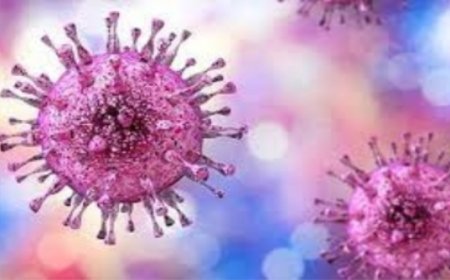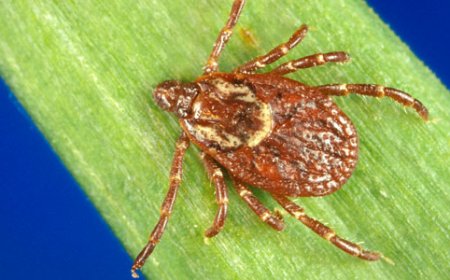Sudden Egg Allergy in Adults: Causes, Symptoms, and Treatment
Sudden egg allergy in adults, its symptoms, causes, diagnosis, and treatment options. How to manage egg allergy and reduce the risk of complications.

Sudden Egg Allergy in Adults: Causes, Symptoms, and Treatment
Egg allergy is a common type of food allergy, children are more likely to experience it than adults. Even if they have never experienced an egg allergy before, adults can suddenly become allergic to eggs. The causes, signs, and remedies for sudden adult egg allergy will all be covered in this article.
1. What is an egg allergy?
An egg allergy is an immune system reaction to proteins found in eggs. The body mistakenly identifies egg proteins as harmful and triggers an allergic reaction to protect itself. This reaction can range from mild to severe and can occur within minutes to a few hours after consuming eggs or foods containing eggs.
2. Can adults develop an egg allergy suddenly?
Yes, adults can develop an egg allergy suddenly, even if they have never had an allergic reaction to eggs before. This is known as adult-onset egg allergy and can occur due to various factors, such as changes in the immune system, exposure to new allergens, or an underlying medical condition.
3. What are the causes of sudden egg allergy in adults?
The exact causes of adult-onset egg allergy are not known, but some possible factors include:
- Changes in the immune system due to aging or hormonal changes
- Exposure to new allergens or increased exposure to egg proteins
- Underlying medical conditions such as autoimmune diseases or gastrointestinal disorders
- Genetic predisposition to food allergies
4. What are the symptoms of egg allergy in adults?
The symptoms of egg allergy can vary from person to person and can range from mild to severe. The most common symptoms include:
- Skin reactions such as hives, rash, or eczema
- Digestive symptoms such as nausea, vomiting, or diarrhea
- Respiratory symptoms such as runny nose, sneezing, or wheezing
- Anaphylaxis, a severe and potentially life-threatening reaction that can cause difficulty breathing, swelling of the throat and tongue, rapid heartbeat, and low blood pressure.
5. How is egg allergy diagnosed in adults?
Diagnosing egg allergy in adults involves a combination of medical history, physical examination, and allergy tests. Your doctor may ask you questions about your symptoms and the foods you eat, perform a physical exam to check for signs of allergic reactions, and order allergy tests such as skin prick tests or blood tests to confirm the diagnosis.
6. What is the treatment for sudden egg allergy in adults?
The treatment for egg allergy in adults involves avoiding eggs and foods containing eggs, and carrying an epinephrine auto-injector in case of an emergency. Your doctor may also prescribe medications such as antihistamines or corticosteroids to manage your symptoms.
7. Can egg allergy be prevented in adults?
There is no known way to prevent adult-onset egg allergy. However, avoiding exposure to egg proteins and reducing your risk of developing other food allergies or allergic conditions can help.
8. What are the complications of egg allergy in adults?
The complications of egg allergy in adults can range from mild to severe and can include:
- Anaphylaxis, a severe and potentially life-threatening reaction that requires immediate medical attention
- Asthma, a chronic respiratory condition that can be triggered by egg allergy
- Chronic digestive problems such as irritable bowel syndrome (IBS)
- Nutritional deficiencies due to the elimination of eggs from the diet
9. How long does egg allergy last in adults?
The duration of egg allergy in adults can vary. Some people may outgrow their egg allergy over time, while others may have it for life. The severity of the allergy can also change over time.
10. Is it safe for adults with egg allergy to eat baked goods containing eggs?
It depends on the individual and the severity of their egg allergy. In some cases, adults with egg allergy can tolerate baked goods containing eggs, such as cakes or cookies, as the heat changes the structure of the egg proteins and reduces their allergenicity. However, this should be done under the guidance of a healthcare professional and in a controlled environment.
11. What are the alternative sources of protein for adults with egg allergy?
Adults with egg allergy can get protein from a variety of sources, such as:
- Meat, poultry, and fish
- Legumes such as beans, lentils, and chickpeas
- Nuts and seeds
- Soy products such as tofu or tempeh
12. How can adults with egg allergy manage their condition?
Managing egg allergy in adults involves avoiding exposure to eggs and foods containing eggs, carrying an epinephrine auto-injector at all times, and wearing a medical alert bracelet. It is also important to read food labels carefully, inform restaurants and food service providers of your allergy, and have an emergency plan in place.
13. What should adults with egg allergy do in case of an emergency?
In case of an emergency, adults with egg allergy should use their epinephrine auto-injector immediately and call for emergency medical help. They should also inform medical professionals of their allergy and carry a written emergency action plan with them at all times.
14. Can adults outgrow egg allergy?
Yes, some adults can outgrow their egg allergy over time. However, this is more common in children than in adults, and the likelihood of outgrowing the allergy decreases with age.
Prevent Egg Allergy in Adults
-
Introduce eggs gradually If you have never consumed eggs before, it's advisable to introduce them gradually into your diet. Start with small amounts of well-cooked eggs and observe your body's reaction. If you experience any symptoms, stop consuming eggs and seek medical advice.
-
Consult with a healthcare professional If you have a history of food allergies or have a family member with allergies, consult with a healthcare professional before introducing eggs into your diet. They may recommend allergy testing or other precautionary measures to prevent an allergic reaction.
-
Read food labels carefully When shopping for food products, read the ingredient labels carefully to ensure that they do not contain egg or egg-derived products. Eggs are a common ingredient in baked goods, sauces, and dressings, so be extra vigilant when buying these products.
-
Be cautious when eating out If you have an egg allergy, it's essential to be cautious when eating out. Inform the restaurant staff about your allergy and ask about the ingredients used in the dishes you are interested in. If you are not sure about the ingredients or preparation method, it's better to avoid the dish altogether.
-
Carry an epinephrine auto-injector If you have a history of severe allergic reactions, such as anaphylaxis, it's essential to carry an epinephrine auto-injector with you at all times. This device can save your life in case of a severe allergic reaction.
-
Cook your food at home Cooking your food at home is the best way to control what goes into your meals. You can prepare egg-free dishes that are safe and nutritious. There are also many egg substitutes and alternatives that you can use in your recipes, such as applesauce, mashed bananas, and commercial egg replacers.
Conclusion
In conclusion, egg allergy can develop suddenly in adults and can range from mild to severe. If you suspect that you have an egg allergy, it is important to see a healthcare professional for diagnosis and treatment. Managing egg allergy involves avoiding exposure to eggs and carrying an epinephrine auto-injector in case of an emergency. With proper management, most adults with egg allergy can lead healthy and fulfilling lives.
What's Your Reaction?





















































